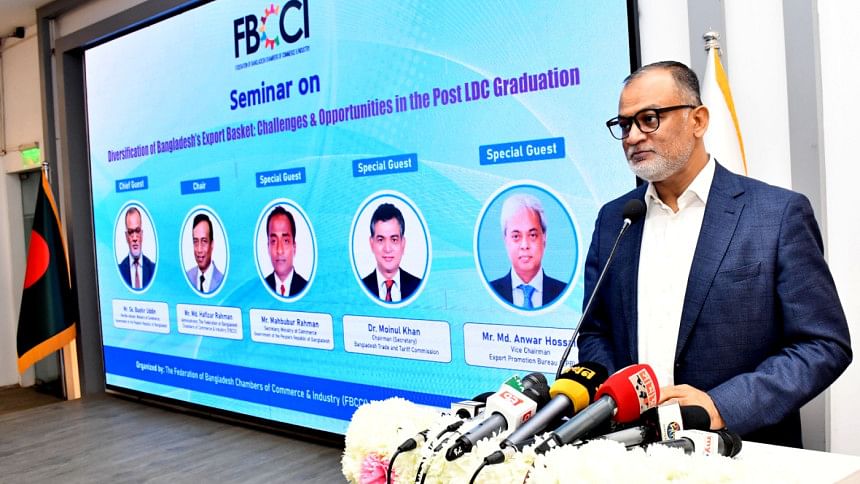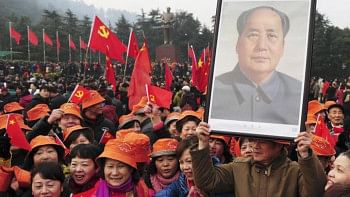Corruption waning, but still stubborn

Corruption in Bangladesh has not been eradicated and remains quite difficult to eliminate, according to Commerce Adviser Sk Bashir Uddin.
Bashir made this comment at a seminar organised by the Federation of Bangladesh Chambers of Commerce and Industry (FBCCI) at its auditorium in Dhaka, yesterday.
"The advisory council does not take any money. From the chief adviser to all other advisers, no one is here for financial gain," he said.
"These individuals [the advisory council] did not come here for money. Instead, our working relationship is transparent. We learn from one another and work together. This itself is a sign of reduced corruption," Bashir added.
The commerce adviser further claimed that the large-scale corruption, which previously led to the theft of Tk 28 lakh crore, is no longer occurring at the same level.
"That level of theft is no longer happening. However, corruption has not been eradicated -- it is quite difficult to eliminate," he said.
Among the most counterfeited items in the world, the US dollar ranks at the top, the adviser noted.
"This cannot be stopped overnight -- it is a very challenging task. However, we have taken various initiatives to address these issues. Due to these measures, corruption has decreased, and it will continue to decline further in the future," he concluded.
Adviser said that to tackle the challenges of post-LDC graduation, sector-based associations and the business community must work together.
He said that in trade, no country is a friend—everyone is a competitor. Accepting this reality, businesses must build consensus among themselves.
The opportunities ahead are far greater than the challenges, and by working together, these opportunities can be seized, he added.
Bangladesh is scheduled to graduate from the Least Developed Country (LDC) category to a developing nation on November 24, 2026, after meeting all three graduation criteria: Gross National Income per capita, Human Assets Index, and Economic and Environmental Vulnerability Index.
FBCCI Administrator Md. Hafizur Rahman, said that one of the key challenges Bangladesh will face after LDC graduation is product diversification.
He stressed the need to identify priority sectors and products and develop targeted strategies accordingly.
Khondaker Golam Moazzem, research director of the Centre for Policy Dialogue, advised businesses to prepare for operating under the new policy framework in the post-LDC era.
"We need to step out of our comfort zone, and we must innovate new products and explore new markets," he said.
"We cannot survive in competition by focusing on how much tax relief we received from any country or what support the government provided," he said.
Moinul Khan, chairman of the Bangladesh Trade and Tariff Commission, said the interim government is committed to addressing the challenges of post-LDC graduation and resolving issues in the private sector.

 For all latest news, follow The Daily Star's Google News channel.
For all latest news, follow The Daily Star's Google News channel. 



Comments